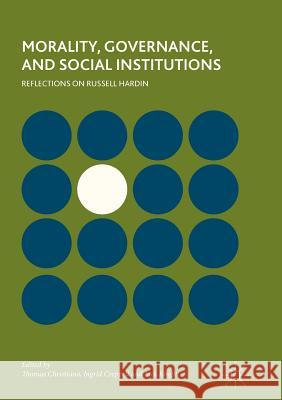Morality, Governance, and Social Institutions: Reflections on Russell Hardin » książka
topmenu
Morality, Governance, and Social Institutions: Reflections on Russell Hardin
ISBN-13: 9783319869964 / Angielski / Miękka / 2018 / 353 str.
Kategorie BISAC:
Wydawca:
Palgrave MacMillan
Język:
Angielski
ISBN-13:
9783319869964
Rok wydania:
2018
Wydanie:
Softcover Repri
Ilość stron:
353
Waga:
0.45 kg
Wymiary:
20.8 x 15.32 x 1.96
Oprawa:
Miękka
Wolumenów:
01
Dodatkowe informacje:
Wydanie ilustrowane











